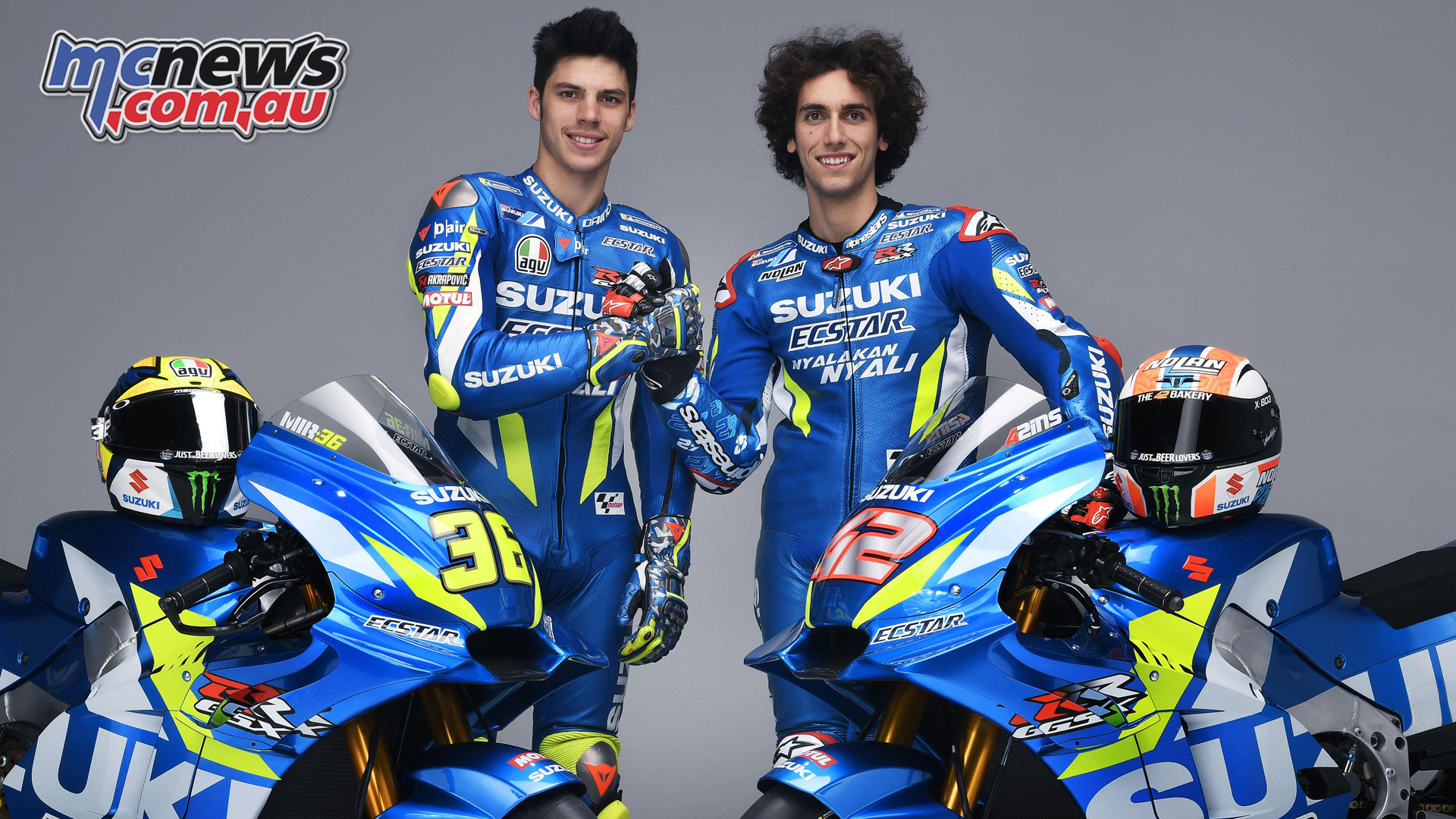Davide Brivio reflects on MotoGP season 2019 ahead of Assen
After seven races in the 2019 MotoGP Season (not including Assen), Team Suzuki Ecstar’s Alex Rins was 3rd in the Championship (-39pt from the leader Marc Marquez, -2 from the runner-up Andrea Dovizioso) with one victory (GP of The Americas) and a 2nd place (GP of Spain) already under his belt.
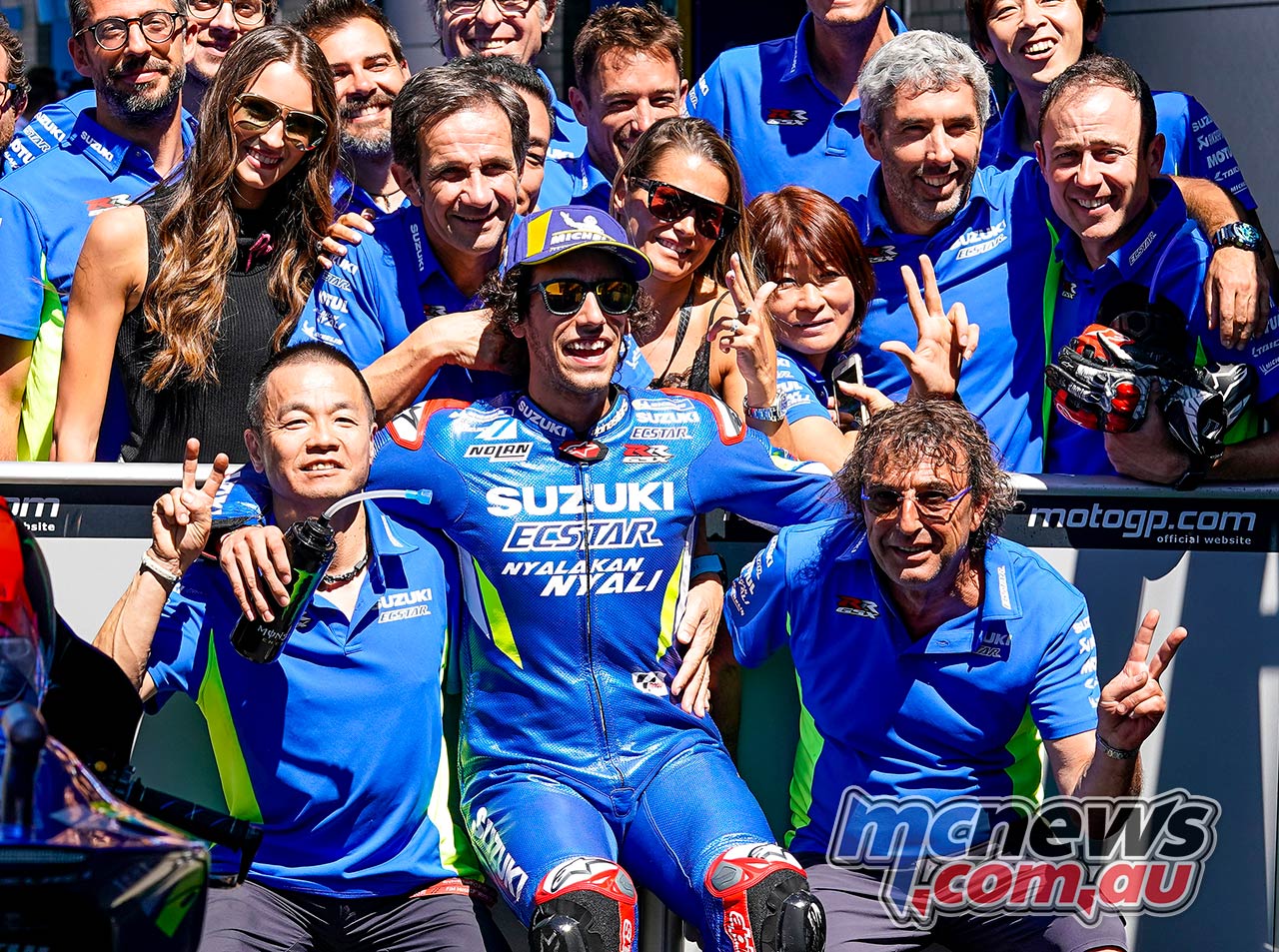
While the rookie Joan Mir, despite some ups and downs, has already scored an 8th place in Qatar and a 6th place in Catalunya, the youngster has been learning quickly and is showing stronger pace with each race.
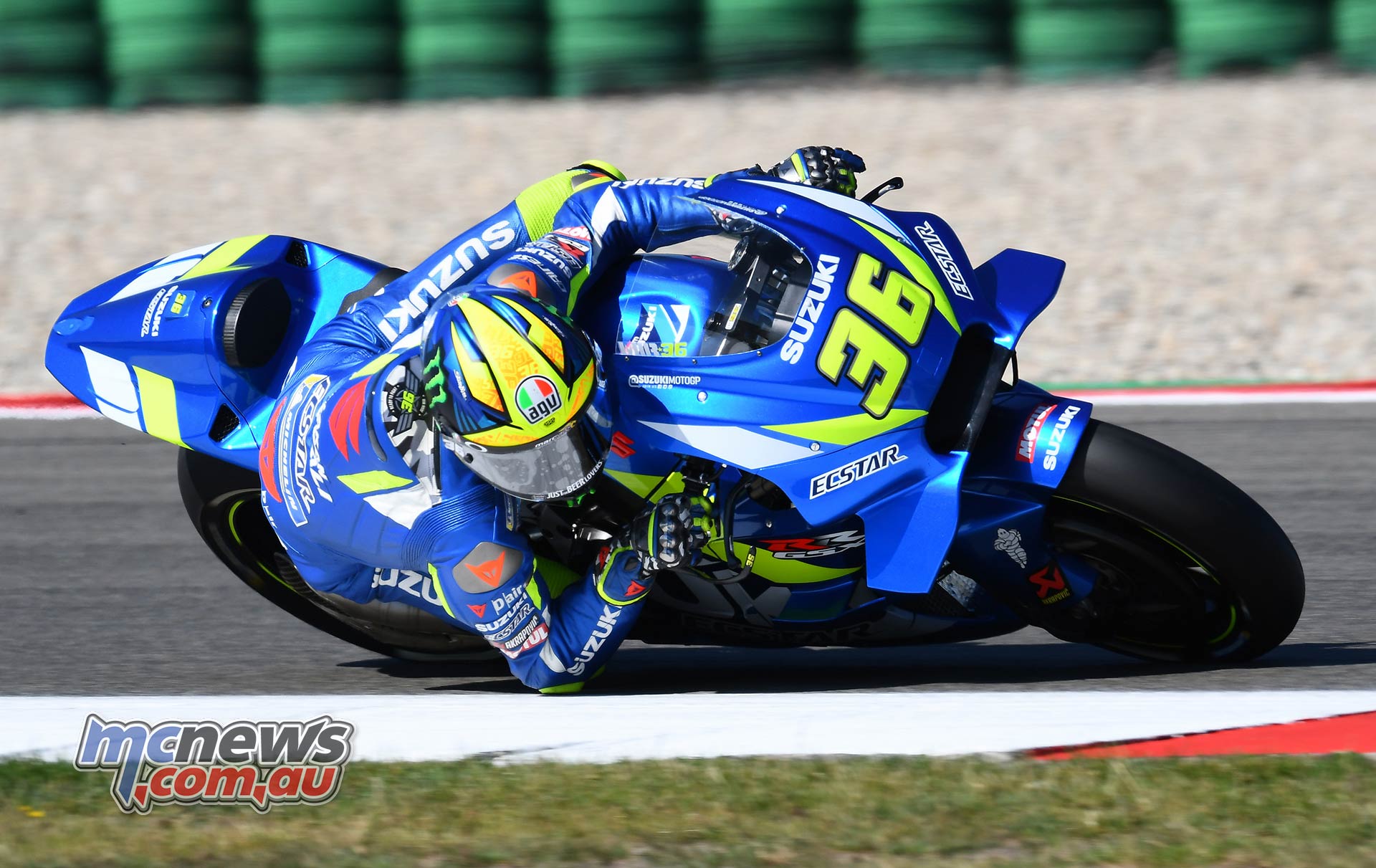
But perhaps what is most impressive are the detailed statistics of Rins; to take victory in Texas, he recovered 11 places from his starting position, and so far he is the rider with the best “recovery rate” this season – with 52 places recovered from qualifying to race finishes. Another impressive statistic is that since Misano last year, he has finished in the top 5 in 12 out of the 14 races, with 5 podiums.
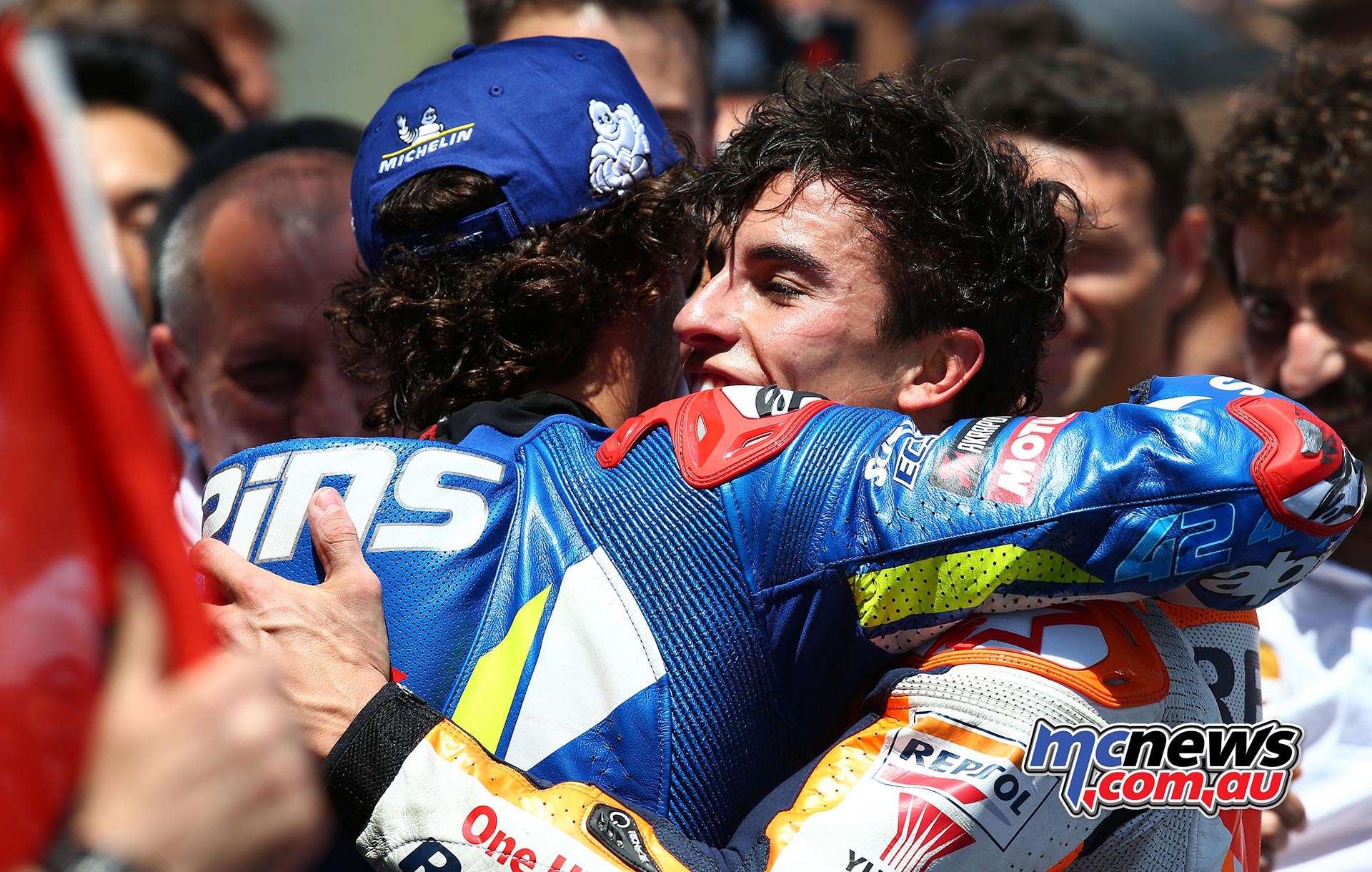
These solid results showcase a Team that has been capable of finding consistency, despite some troubles in qualifying. But where do these performances come from? Team Manager Davide Brivio has a privileged point of view inside the team and is the best person to explain some of the secrets behind these great comebacks.
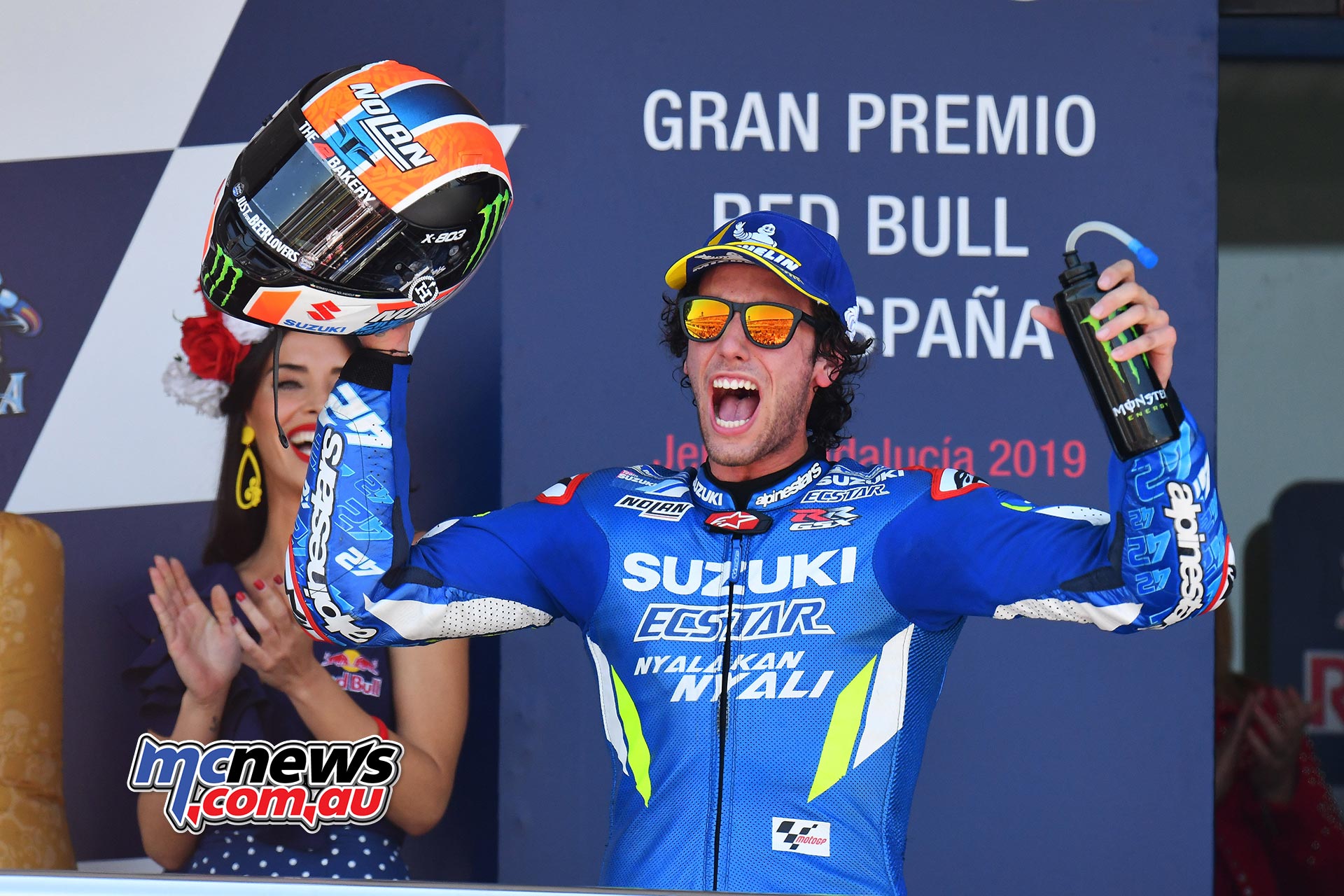
Davide Brivio
“It is true that since Misano last year we found a positive path that led us to a series of good race results, which culminated in consistent top 5 or top 6 placements for Alex Rins. This is due to the improved performance of the GSX-RR, but also an important step that Alex made personally towards the end of last year. We should not forget that his first season was heavily affected by injuries, which delayed his apprenticeship of learning and growing, finally everything ‘clicked’ at the end of last year and he blossomed. The most important remark on this is the consistency that he achieved: he’s taken five podiums in the last fourteen races, and they were not down to luck, they are the result of his consistent presence in the leading group in the races. This was exactly our target and strategy: to grow as fast as possible and be consistently fighting in the leading positions to take advantage of any podium chances. Now, with these results, we are happy to be considered a consistent contender for the podium – or the victory – in any race, even at the tracks where in theory we should struggle more.”
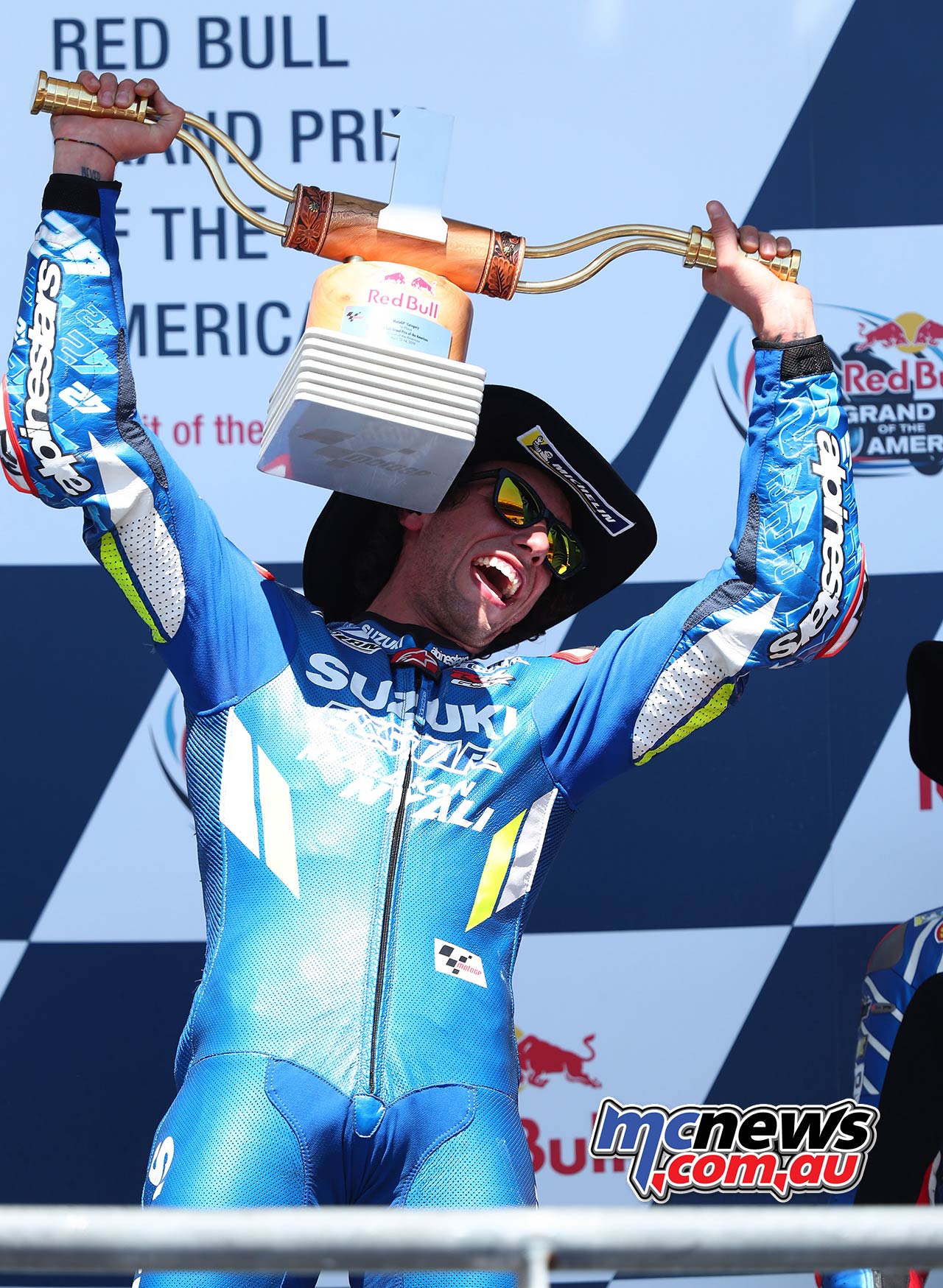
The good results in races have also stemmed from difficulties, as Rins is often left to ride a ‘recovery race’ after tricky qualifying sessions.
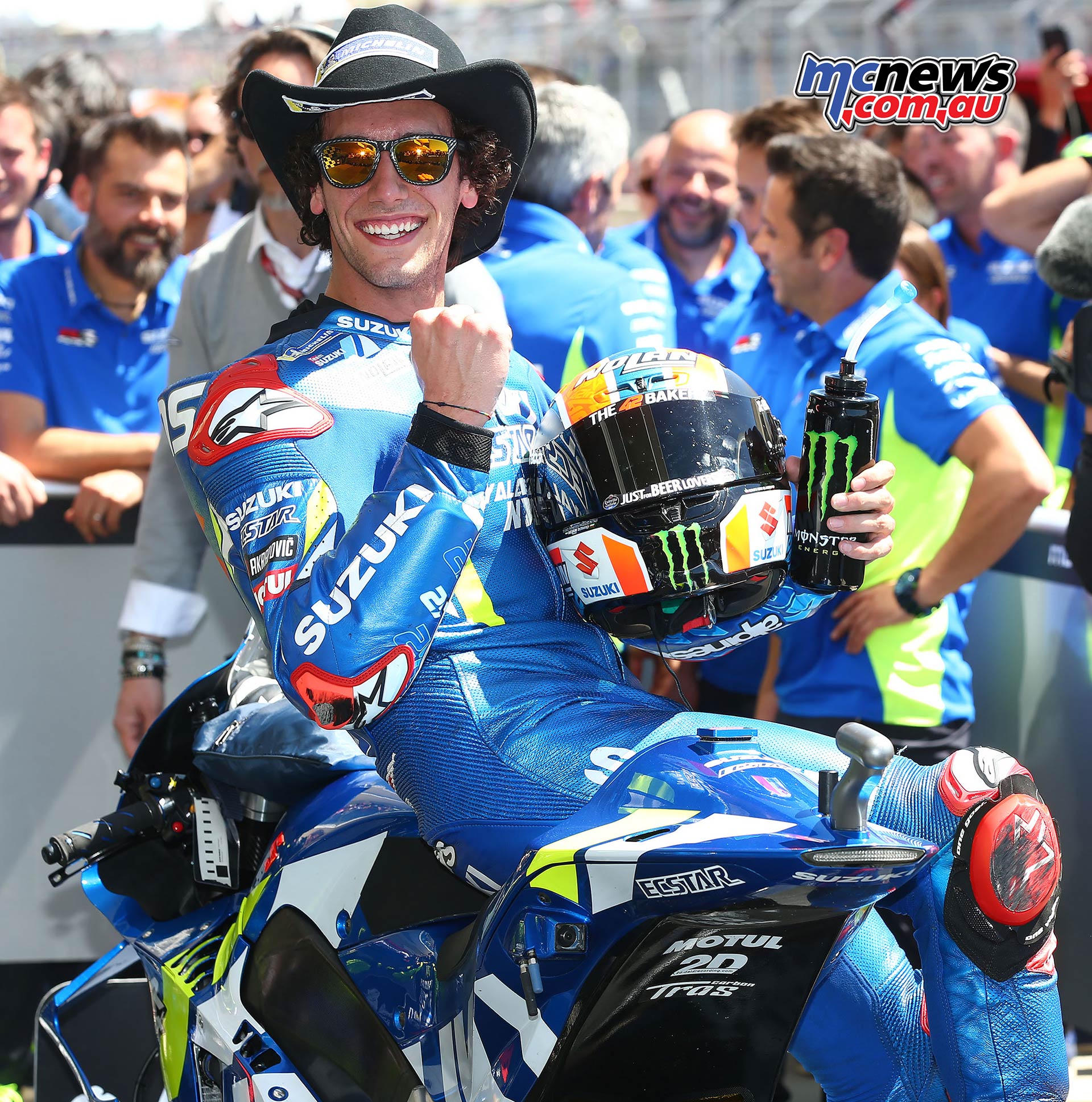
“Alex is proving to be a real race-animal,” Continues Brivio. “After the red lights go off he actually can find that extra performance that allows him to catch up and get into the fight for the podium. If we analyse the races of this year, it is true that he struggled in finding that killer instinct needed for the time attack, but it is also a matter of characteristics of the bike. Our objective in the development has always been to find a bike that is perfectly balanced, with excellent rideability. This translates into a machine that is perfectly set-up for race distance, with a good tyre management, which allows him to be competitive until the very last laps. Our next step will be to translate this balanced performance also in an improved efficacy in the qualifying time attack. Of course, some races have been complicated by the tricky conditions and sometimes unlucky situations in qualifying.”

So, the philosophy of development is a crucial part of this process of improvement, because…

“In Suzuki the priority has always been to find a well-balanced bike” as Brivio says. “This is part of our company culture, and at the moment it is rewarding us with positive results. We are a team that is half European and half Japanese, so we have to mix the two cultures. We Europeans are more focused on the work at the circuits, while in Japan they do all the crucial behind the scenes development and deliver the base and the updates. We have struck a good balance and we have learnt to mix the two different approaches and philosophies. There is a lot of communication between the Team on track and the engineers at home, and some of the Japanese engineers come to every race, and then sometimes we go to Japan for some face-to-face meetings. Apart from that, nowadays modern technology allow us to stay in touch wherever we are, thanks to phones, messages, emails. This means the exchange of information and data is constant.”
